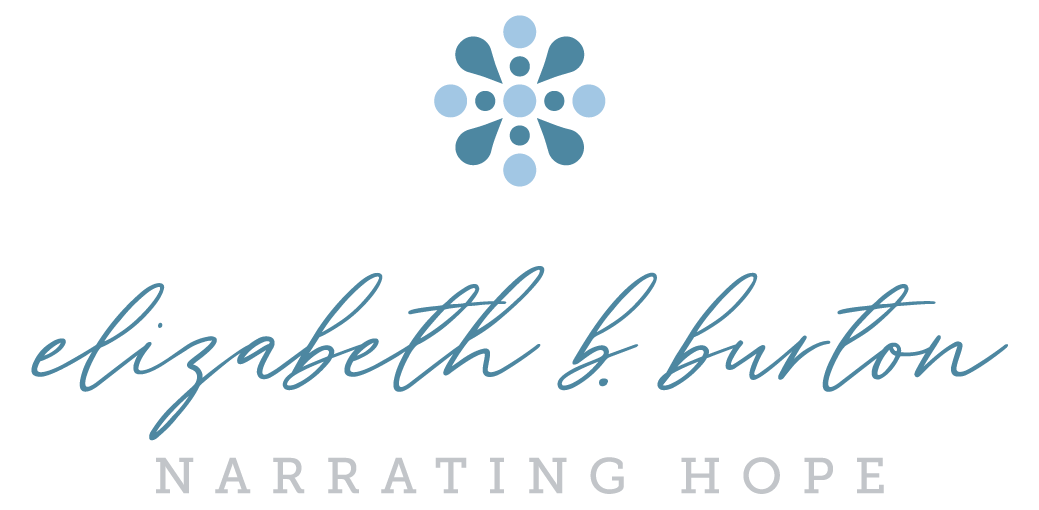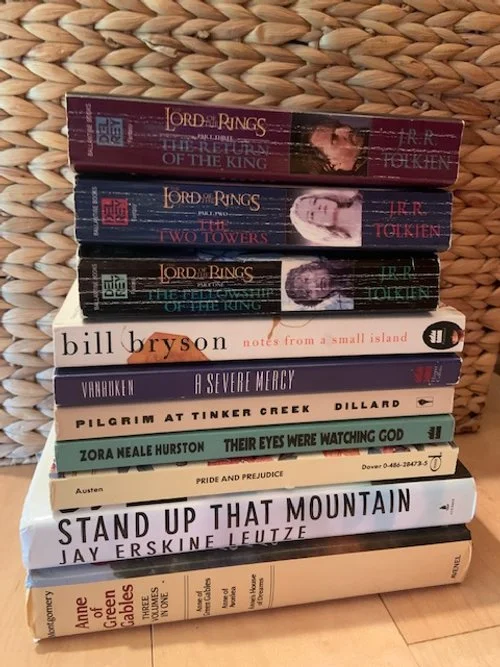Reading and Wellness: The Life-Giving Practice of Reading and How it Supports Well-Being
At the start of this Summer, a dear friend came to visit. During the visit she asked me what I was reading. NOTHING, I answered. At the time myself and my family were in the thick of an extra busy end of the school year filled with lots of celebrations and markings of the end of the season. It was so fun and celebratory, and yet it is often the case that when we are busiest sometimes things we really enjoy get pushed to the fringes.
Yet, her question stuck with me, like holding up a mirror. Am I making space to take care of myself? How can I make room to read because it is something I so enjoy? How is my own mental health and wellness?
A theme that comes up in my work often is that of paying attention to what is life-giving. When something is life-giving, it has the power to refresh us, to energize us, to relax us, to inspire us, to grow us, to nurture us.
We all need life-giving people and practices in our lives, even when we are busy, and perhaps especially when we are so busy.
The Benefits of Reading
To immerse ourselves in a story. Particularly with fiction, there is the opportunity to access imagination and wonder, empathy for what the characters are going through, and perspective on a narrative that is not our own.
To disrupt our looping thoughts. Many times with anxiety especially, we ruminate. Our thoughts may loop over and over, like a train traveling well trodden train tracks. This is different than problem solving. This is not productive, and we need help interrupting looping thoughts, so that we can come down from such high alert. Stories can do this.
To access a state of well-being. I love the concept of the “window of tolerance.” When on such high alert or the opposite state of feeling numb and no or little motivation, we have to look for pathways to get back to our “windows.” Reading can be one of these pathways. When you take time to read, notice how you feel. Does your body tense up or relax? How is your breath? Are you holding your breath or beginning to breathe more normally again?
To provide rest. Many times a barrier to reading is “I don’t have time,” and yet when we pause to read it’s like we claim an opportunity to rest as we all need and are worthy of rest and refreshment. While we might read through an audio book or a screen, there’s just something about holding a book between your hands, feeling the pages, getting to sit or lay down, even if it’s just for a few minutes.
To know that we are not alone. When we read a narrative that tells of a character that we can identify with, even somewhat, it helps us know that we are not alone.
These benefits of reading extend to kids as well as adults. When reading kids are able to grow their imaginations and creativity, which helps foster an exploration of possibilities and outcomes. Reading also can provide a significant break and interruption to the ever present pull towards screen time. Reading aloud to and with kids provides opportunities for connection and comforting daily rhythms such as reading a story before it’s time to say good night.
After my dear friend asked me the simple question about what I was reading, I reflected and then took action. Summer reading has included Demon Copperfield by Barbara Kingsolver which I listened to while taking on a big home painting project (not so restful, but still purposeful), The Salt Path by Raynor Winn which has been more of a slow, reflective read, encouraging me to pause and rest, and Above the Bay of Angels by Rhys Bowen, which has been a delightful beach read, accompanied by the the feel of sand under my feet and the sound of ocean waves. Each book has been purposeful and life-giving in their own ways.
For Reflection
How about you? How does reading affect your own wellness?
Is there a correlation between taking time to read and how you feel?
If you find reading life-giving, what are you reading?
If reading is not so appealing to you, what else can serve as a life-giving practice or outlet for you?
Elizabeth B. Burton is a licensed professional counselor and life coach with Burton Counseling, PLLC. Elizabeth lives just outside of Chattanooga, TN., and you can learn about Elizabeth here. You can learn more about working directly with Elizabeth here. Elizabeth also provides support to individuals and groups through an online course on Coping with Anxiety & Stress and through providing workshops. Elizabeth communicates about mental health and well-being through both the Narrating Hope newsletter and podcast as well as through her writing. Elizabeth would love to connect with you and welcomes you to sign up for the newsletter, listen in to the podcast, reach out about working together, and connect on social media.

